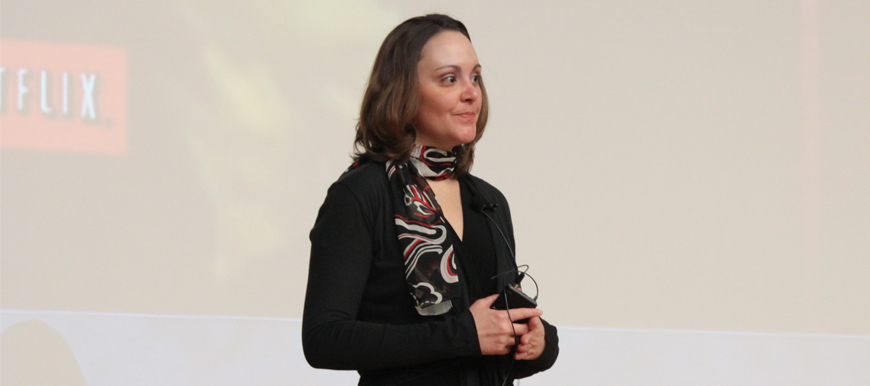Men and Women relate to messages in the “Vagina Monologues”
Standing behind the soundboard of the Taggart Student Center auditorium as actors practiced their lines in the background, “Vagina Monologues” director Annie Lantis related why she had dedicated four years of her life to the show.
“Most of the women that I knew and have grown up with have been abused in one way or another,” Lantis said. “And I show my support and commitment by doing this show, by saying, ‘That’s not OK.'”
Lantis has been involved with the show four of the five years consecutive it has been produced at Utah State University. Besides working as the director, Lantis also performed in segments entitled “They Beat the Girl out of my Boy… or so they tried” and “Six Year Old Girl” this year. Through her experience, Lantis said the monologues open up an opportunity to discuss sexual assault and rape.
Though Lantis said she could not speak for the effects of sexual assault and rape first hand, she has witnessed the anguish it caused her little sister.
“Holding my little sister when she cried and wishing that I could take it away or protect her somehow, but I couldn’t,” Lantis said. “And that was difficult for me because I’m the big sister, and I am supposed to protect and help my little sister, but I couldn’t.”
After interviewing more than 200 women of different ages and cultures, playwright Eve Ensler began performing a selection of interviews in 1996 as part of the monologues. As the popularity of the monologues spread, colleges began producing the show as part of the annual V-Day campaign to end violence against women and girls.
The monologues create a collage of experiences that women as well as men can relate to.
“Obviously, women are not the only ones who have experienced violence,” said monologue coordinator Jordan Ames. “Men have experienced violence as well.”
This year Ames said there was even a social media campaign, #menrising, that opened up a discussion for men to talk about sexual assault and violence in addition to women. Ames said the amount of involvement men have shown with the monologues has risen over the years.
Special education major and audience member Bryan Casselman, joked that being constantly surrounded by women — with four sisters and female coworkers — he couldn’t help but to be a proponent for women’s rights.
“The more men experience this and understand a lot of the problems with sexual assault and rape, I feel like that will be a big proponent for change,” Casselman said.
He said he feels like a stereotype of what an “annoying feminist” is exists, but it’s easier for most guys to be open minded and relate to other guys who identify as feminists than to women.
“I don’t know if it should be like that, but it is,” he said.
Production manager Brock Wilson said his connection to the monologues was the deciding factor for involvement in the play. Bullied up until coming out his junior year of high school, Wilson said he finds similarities between feminism and the movement for same-sex marriage.
“I think it’s really important for us to be honest with ourselves who we are as people,” Wilson said, “whether it’s good or bad. It’s really freeing, really liberating in a way for us to accept ourselves for what we really are, and there’s something something really beautifully simple in the ‘Vagina Workshop’ that I really relate to in that regard.”
“My Angry Vagina” performer Carly Crosby said she “really pushed down (her) sexuality and everything to do with (her) body” growing up.
Feelings of shame and hurt drove Crosby to read every health education book she could find because she did know who to talk to, she said.
When she saw the monologues for the first time, Crosby said it said it was a “life changing moment.” Now a feminist and an advocate for women who felt as she once did, Crosby said she hopes the audience embraces the messages of the monologues.
“We don’t want to be angry,” Crosby said. “We just want to be us without feeling shamed, without feeling sad, without feeling hurt. I hope that other people can see that and be like, there is a time. Maybe it’s not now for some people, but there will always be a place in the future for those who aren’t feeling it right now — that you can be true to your body, that you can not be ashamed, that you can interact with the world like you’re not hiding anymore.”
Biological engineering major and performer Megan Garrido said volunteering at Citizens Against Physical and Sexual Abuse made rape and sexual assault statics all the more real to her. When Garrido first read the last lines of the production, she said she couldn’t hold back her emotions.
“It’s really a beautiful poem, and I got all emotional, so I cried,” Garrido said. “I really liked it because it was really powerful, and I tend to a be a soft person, and I think having a speech that’s really powerful made me realize that you can be a strong woman and not be threatening and still really constitute but stand up for yourself and motivate other people to also take action.”
Jenna Hase, a junior applying for the social worker program, performed as “The Woman who Loved to Make Vaginas Happy.” Hase said her experience with the show has helped show that those who have been sexually assaulted are not alone.
“If you were sexually assaulted, it’s not your fault,” Hase said. “And when you come here, even if you were never from Bosnia or you’re not a hooker or you’re not a woman, you can find something that you can relate to on some personal level, and I believe this show will touch everyone in a different way.”
— katherine.l.larsen@gmail.com

